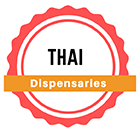Thailand drops cannabis extracts from narcotics list; firms eye investments
BANGKOK (Reuters) – Thailand has removed cannabis and hemp extracts from its narcotics list, officials said on Monday, the latest effort to promote the development of marijuana products for medical purposes. FILE PHOTO: People attend Cannabis Expo in Buriram province, Thailand, April 19, 2019. REUTERS/Prapan Chankaew Thailand, which has […]
BANGKOK (Reuters) – Thailand has removed cannabis and hemp extracts from its narcotics list, officials said on Monday, the latest effort to promote the development of marijuana products for medical purposes.

FILE PHOTO: People attend Cannabis Expo in Buriram province, Thailand, April 19, 2019. REUTERS/Prapan Chankaew
Thailand, which has a tradition of using cannabis to relieve pain and fatigue, legalized marijuana for medical use and research last year to help boost agricultural income.
“The intention is to allow extracts to be used in medicine, cosmetics and food and support hemp as a cash crop,” Tares Krassanairawiwong, Secretary-General of the Thai Food and Drug Administration, told reporters, adding that hemp seed and oil would also be exempt.
So far, only hospitals and research facilities are allowed to apply for licenses to develop medical extracts from cannabis, but businesses see an opportunity.
Ishaan Shah, from the billionaire Shah family, founded the Ganja Group in Bangkok and plans to supply medical cannabis to the family’s GP Group’s pharmaceutical arm, Megalife Sciences Pcl.
“We are working toward cannabidiol (CBD) extraction, that’s our short term goal,” Shah told Reuters.
Thailand’s cannabis market is expected to reach $660 million by 2024, according to analysis firm Prohibition Partners.
Extracts from cannabis and hemp plants such as pure CBD, CBD-based products and products with THC content of less than 0.2%, the psychoactive ingredient in cannabis, were removed from the narcotics Category 5 schedule, the regulator said.
Licenses are not yet available for businesses.
Category 5 drugs are punishable by up to 15 years in prison and fines of up to 1.5 million baht ($49,019.61).
Early-stage venture capital fund manager, Expara, is aiming to raise $30 million by December this year to invest in cannabis-related technology, said Managing Director Douglas Abrams.
“We think the change in the regulatory environment is a leading indicator of fast growth in this new industry,” he told Reuters.
Cannabis production, cultivation and sale is limited to licensed Thai producers for five years to protect the domestic industry, Tares said, adding that it was reviewing regulations that would allow businesses to apply for permits.
Some 334 permits have been issued so far, mainly to hospitals and health agencies, according to the FDA website.
Thailand delivered its first patch of 10,000 bottles of cannabis oil extract to patients last month.
